
PR
Kyoto is a place of great interest to me because of the "legendary" places that are often found in the scenery of everyday life. Sometimes I have had the experience that a place I stopped by was actually a powerful power spot or a dangerous place with a history ...... when I checked it out later.
That day, I didn't do much homework,Oiwa Shrine in Fukakusa, Fushimi-ku.I visited the In the past,A shrine that was blessed with the deity of a large rock in the mountains to ward off plague and disease.indicates certainty, emphasis, etc.Great view from the observation deck at the top.I was told.
Getting off at Fujimori Station on the JR Nara Line, we walked along the old road to Oiwa Kaido and stepped onto the desired path to Oiwa Shrine.
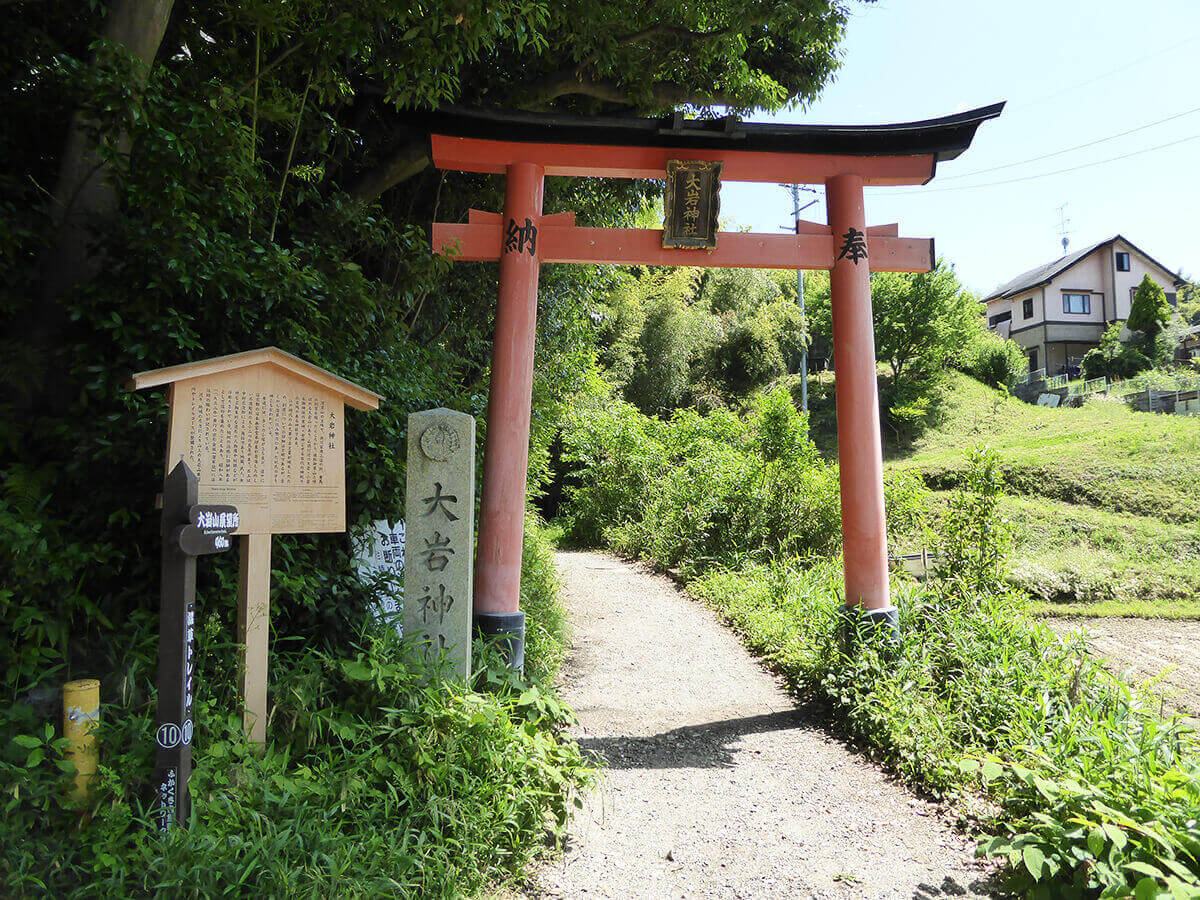
Torii at the entrance of the approach to Oiwa Shrine
We passed through the vermilion-lacquered torii gate and walked along the approach beside a rather rough bamboo thicket.
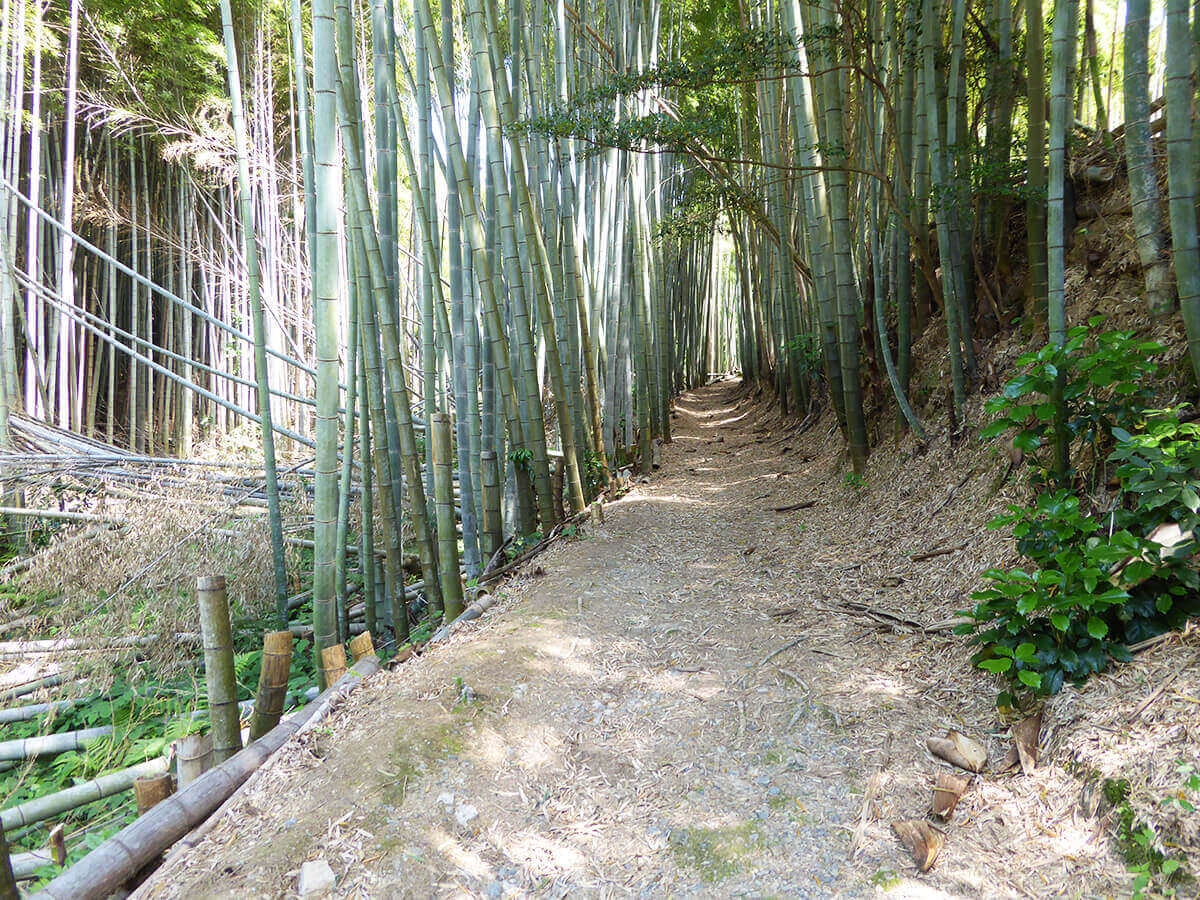
Bamboo approach
On the way there, there was a sign warning against pit vipers, and next to it was a dimly lit, not very large pond. As I approached, I saw only one carp. We walked further up the narrow, dense path, taking care to avoid the muddy footing caused by the previous day's rain.
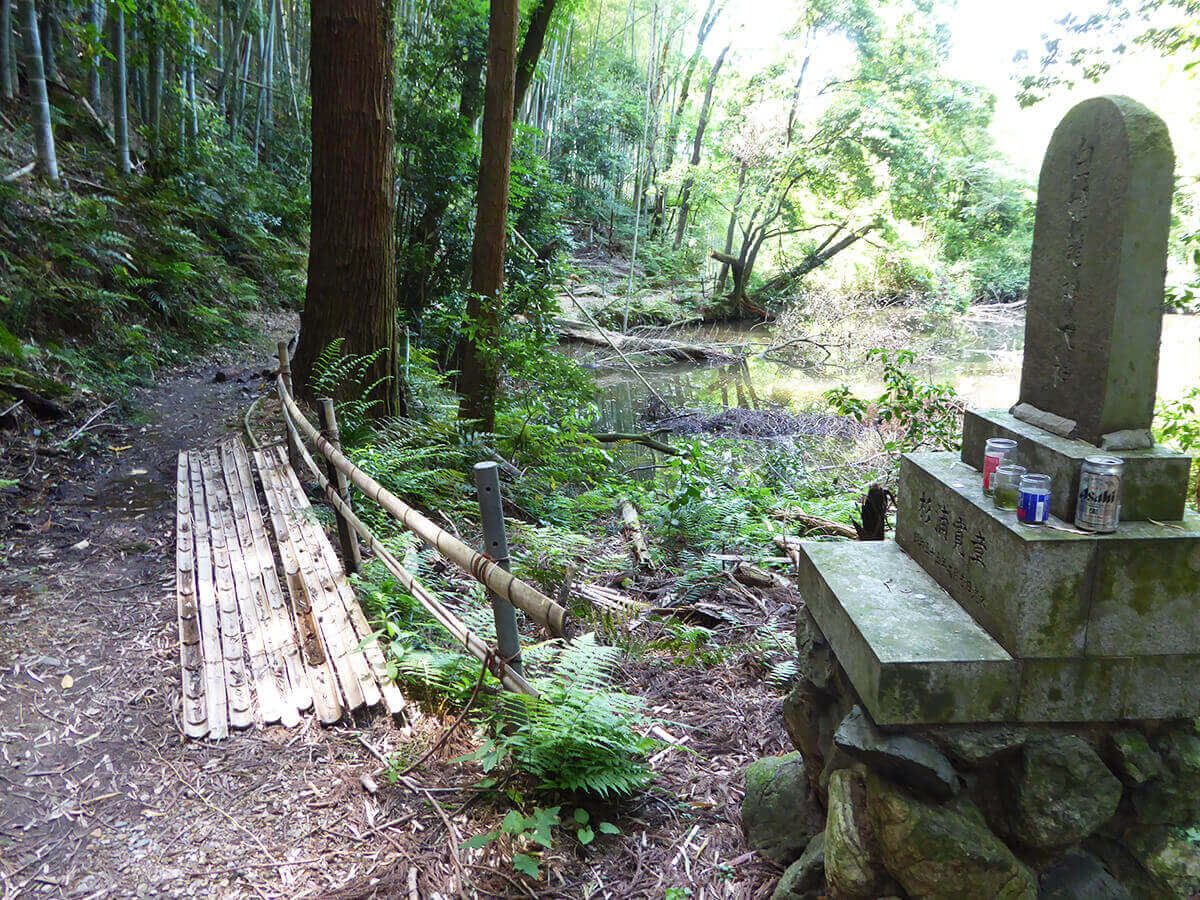
Pond in the back on the right hand side
And suddenly, a mysterious torii gate appeared in front of me.
For a moment, I gasp.
The torii gate standing amidst the trees was so different from ordinary torii gates that it even had a strange atmosphere.In the center of the stone torii gate are inscribed "Oiwa-tokami" and "Koiwa-tokami," with goddesses, warriors, rabbits, and birds, and the stone pillar has a design reminiscent of an arabesque pattern and a jizo carved on it.Arch-shaped objectIt's like that.
The torii gate was actually designed by the Kyoto-born Japanese-style painter Impression Domoto, who donated it to Oiwa Shrine, with which he had a connection.
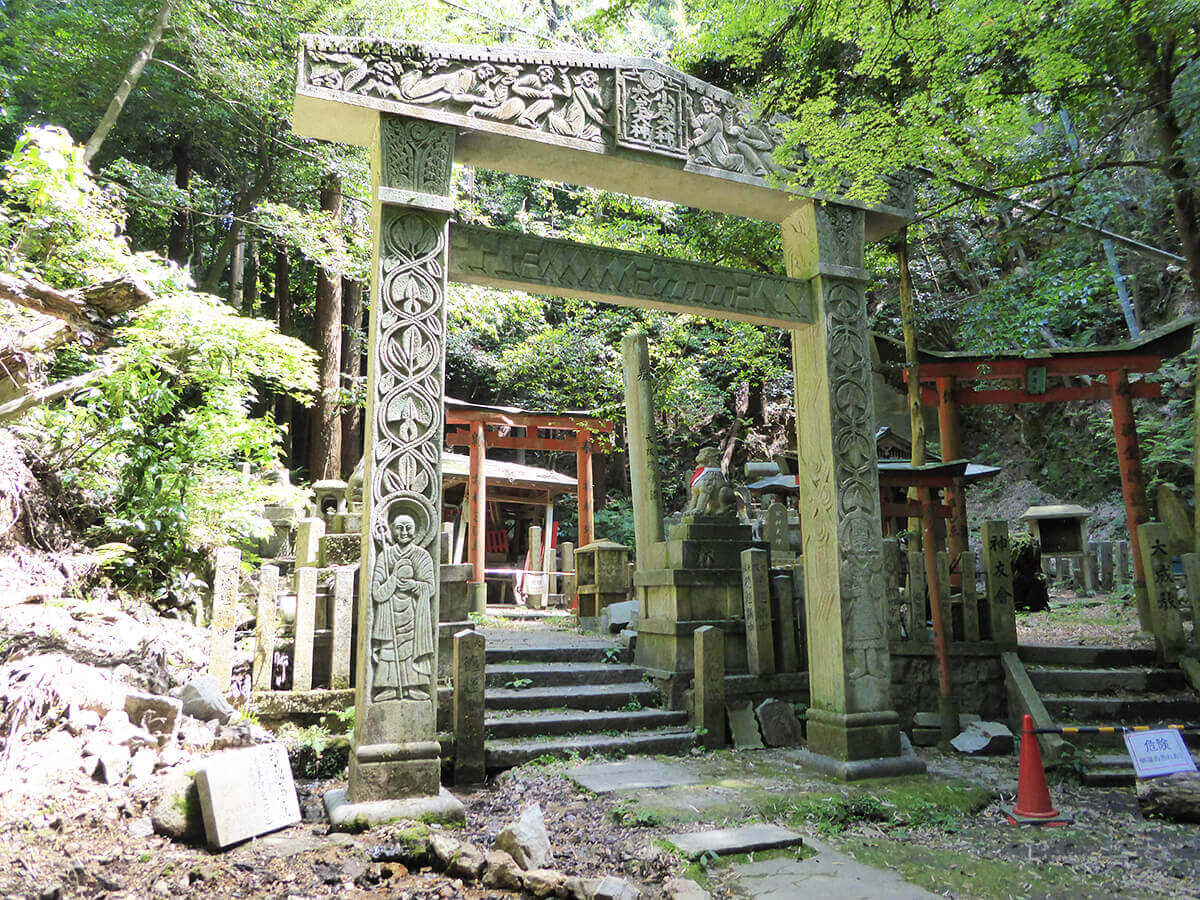
Torii gate designed by Impression Domoto
I passed through the torii gate, a little relieved to hear that it was designed by Impression Domoto.
Surrounded by fallen trees and several dilapidated torii gates, beyond the leaning shrine I saw a large, blackened rock rising out of the mountainside. The narrow approach to the temple was so close to the trees that we did not see a single hiker that day. And not a single hiker was to be seen that day, not even after I stepped onto the path,My mind is buzzing and restless.In my experience, when you are in this kind of mood, it is better to pass by quickly. In contrast to yesterday's rain, the sky above us was pleasantly clear, but I was in the mood to get out of this approach as soon as possible, so naturally I was speeding up my pace.
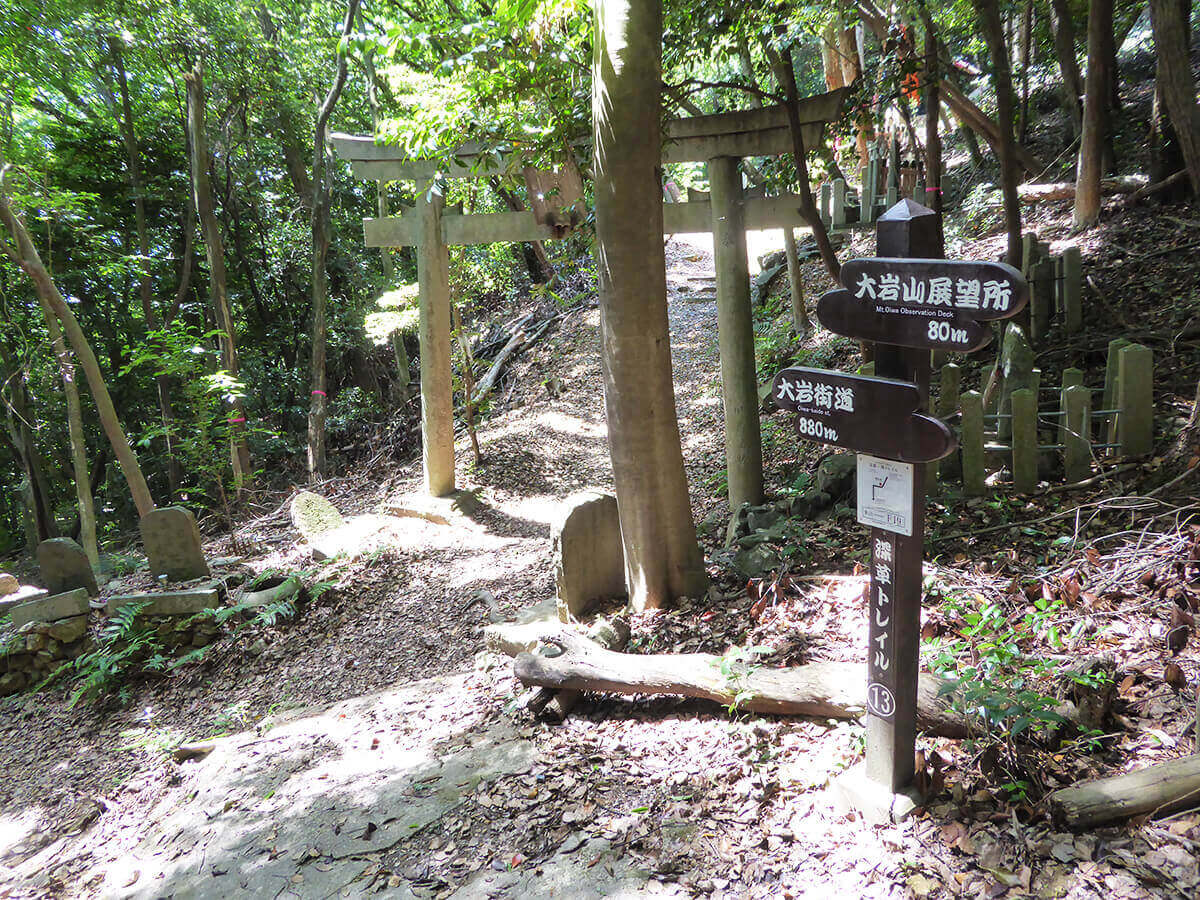
Approach to Oiwa Shrine
Later, I looked into the Oiwa Shrine.
Oiwa and koiwa as the male and female deities of the gojinshiA shrine with vestiges of ancient deity worshipThe legend tells of a man and a woman who were devoted to each other and cured each other of their illnesses. According to legend, the two deities nursed each other's illnesses with devotion, and were both cured. The legend goes, "Theincurable diseaseIt was believed to be a spiritual center for the healing of tuberculosis. In the old days, tuberculosis was considered an incurable disease, and many patients came to the temple to pray.
And this God is not only incurable diseases,It is also beneficial for mental illnessI was told that the place was a ghost story. However, a fellow writer, who is familiar with ghost stories, told me, "There used to be a pond on the way, but it was closed at night,Someone saw red balls flying around.It seems," he said!
Hiking, Impressions of Doumoto, Incurable Gods, and Ghost Stories.The ability to encounter a variety of faces in one place is one of the best parts of Kyoto.I have a feeling that this is the case.
By the way, as soon as we climbed up the approach to the Oiwa Shrine, it became brighter and the view became more expansive. We arrived at the Oiwa viewpoint. It is a well-maintained viewing spot where one can sit and rest.
On a clear day, you can see as far as the buildings of Osaka, but on this day it was a bit hazy and I could not make out the buildings. Even so, the view of Fushimi Castle, Otokoyama, and other scenery in southern Kyoto spread out below us, and all the fatigue and fear in my legs were quickly swept away.
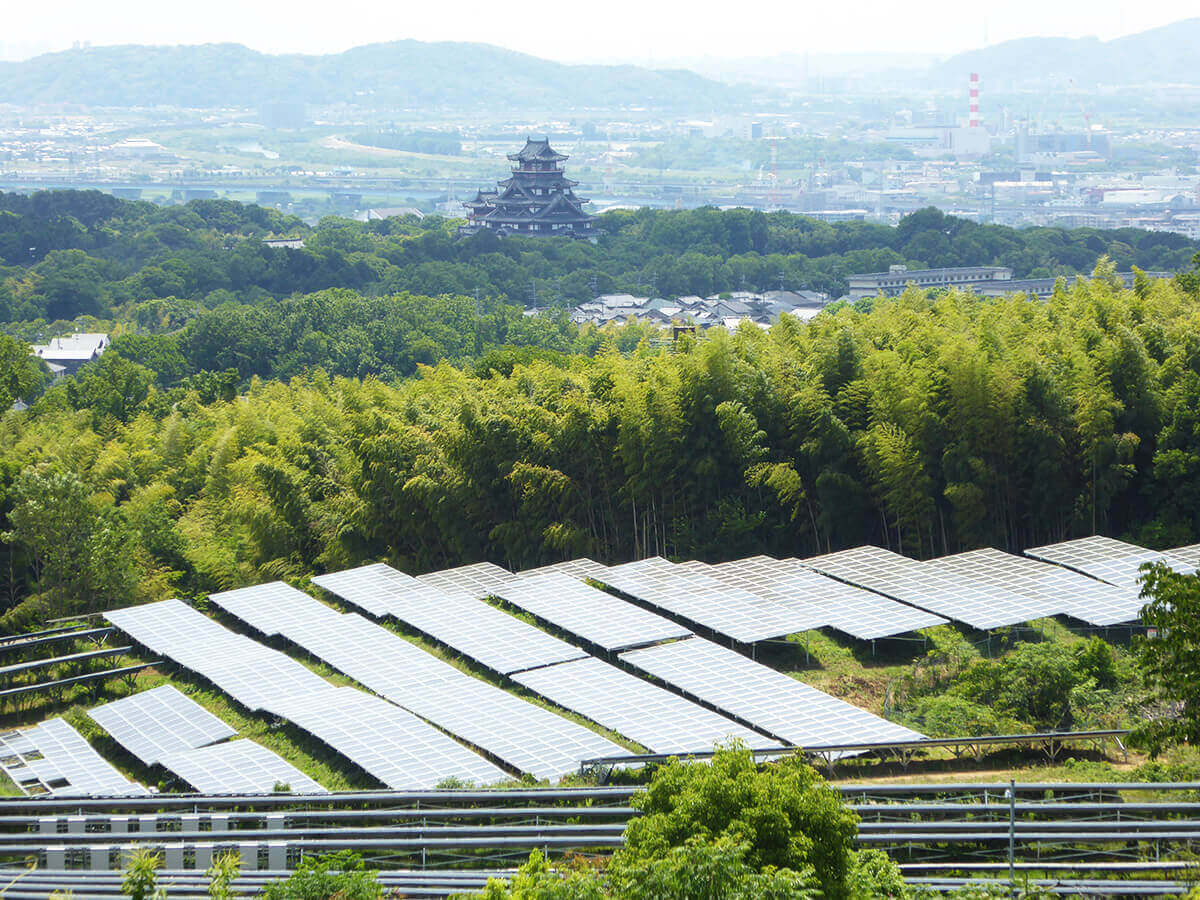
View from the Oiwa Observatory
(Fushimi Castle can be seen in the center)
Tradition that exists everywhere in the city of Kyoto. It is not just a picture, it is secretly alive in this modern age and continues to coexist with people. The two of Office TO, who previously wrote a series of articles "Kyoto's Demon World Exploration" in the monthly magazine Leaf, explore the mysterious "different" world of Kyoto, which was created over 1200 years. I will unravel the story while actually visiting the place. .
 News
News Feature article
Feature article Featured event
Featured event